Sign up for our newsletter to be notified of new posts!
Update: We have announced the winners (and honorable mentions) for the 2024 prize! Also see the full shortlisted titles for the nonfiction and translated literature awards.
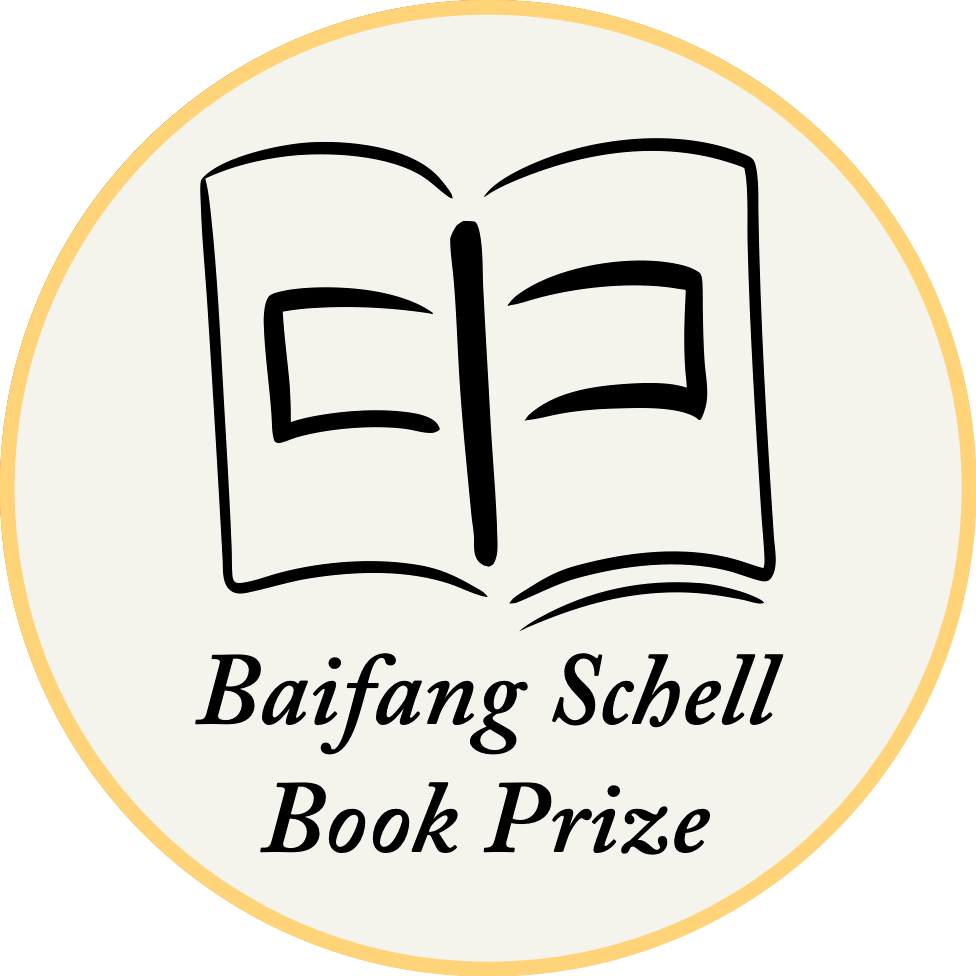
At China Books Review, published by Asia Society’s Center on U.S.-China Relations and The Wire China, we are pleased to announce the upcoming Baifang Schell Book Prize. This new annual award will celebrate exceptional book-length works on or from China and the greater Sinophone world, published in English.
The inaugural awards ceremony will take place at Asia Society’s New York headquarters later in 2025, considering books published in 2024. Winners will be awarded in two categories, each accompanied by a $10,000 cash prize:
- Award for Outstanding Nonfiction Book on China or the Sinophone World
- Award for Outstanding Translated Literature from Chinese Language — shared between author and translator(s)
The awards seek to recognize and promote excellence in books that deepen understanding of the complexities of China and the greater Sinophone world, through original reporting, incisive analysis, compelling narrative and literary merit.
A distinguished panel of five impartial judges for each category — composed of prominent China scholars, authors and literary experts — will select the winners from a list of eligible books published in the previous calendar year. Shortlists and honorable mentions will also be announced. Submissions will be accepted from publishers, with a longlist compiled from nominations by scholars, writers and experts in the field.
The prize is named in honor of Liu Baifang Schell, who passed in 2021 after spending her life working to advance U.S.-China relations.
We look forward to announcing the shortlists and winners of the 2024 prize later this year. The juries for each award are listed below, followed by further details, including how publishers can submit titles for consideration.
Jury: Award for Outstanding Nonfiction Book on China or the Sinophone World

Andrew J. Nathan (chair) is Class of 1919 Professor of Political Science at Columbia University. He studies the politics and foreign policy of China, political participation and political culture in Asia, and the international human rights regime. Nathan’s books include Chinese Democracy (1985), The Tiananmen Papers (2001), China’s Search for Security (2012), Will China Democratize? (2013), and China’s Influence and the Center-Periphery Tug of War in Hong Kong, Taiwan and Indo-Pacific (2021).
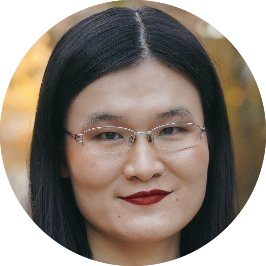
Yangyang Cheng is a Research Scholar at Yale Law School’s Paul Tsai China Center, where her work focuses on the history of science in China, and U.S.-China relations. Her essays and literary criticism have received several awards from the Society of Publishers in Asia, the Asian American Journalists Association and other media organizations. Born and raised in China, and trained as a particle physicist, she worked on the Large Hadron Collider for over a decade.

Barbara Demick is an author and foreign correspondent, who was based in Beijing for The Los Angeles Times from 2007-14, and in previous postings covered Korea, the Middle East and Eastern Europe. She is author of Nothing to Envy (2010), which won the Baillie Gifford Award, Eat the Buddha (2020), and the forthcoming Daughters of the Bamboo Grove (2025). Her work has also won the Overseas Press Club’s human rights reporting award.
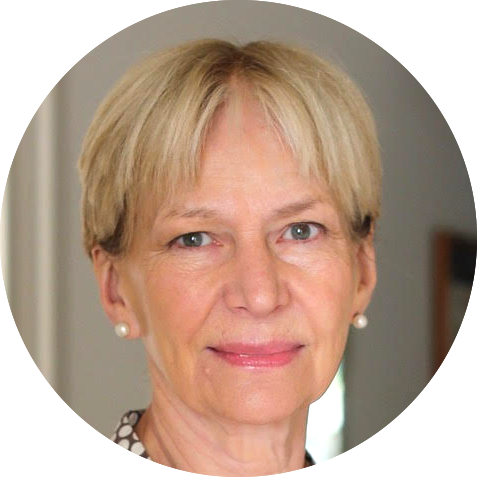
Isabel Hilton OBE is a London-based writer and broadcaster who focuses on climate, geopolitics and China. She has written for The Guardian, The New York Times and The New Yorker, presented radio and television for the BBC, and is the author of multiple books including The Search for the Panchen Lama (2000). Hilton is the founder of the China Dialogue Trust, and contributing editor at Prospect magazine. She was chair of judges for the Baillie Gifford Prize in 2024.

Jeffrey Wasserstrom is a Distinguised Professor of History at UC Irvine, with a focus on modern China. He is the author, co-author, editor or co-editor of over a dozen books, including China in the 21st Century (2010), Vigil (2020) and The Milk Tea Alliance (2025). A frequent contributor to both scholarly periodicals and newspapers and magazines, he was editor of the Journal of Asian Studies (2008-2018), and co-edits the China section of the Los Angeles Review of Books.
Jury: Award for Outstanding Translated Literature from Chinese Language

Eric Abrahamsen (chair) is an award-winning literary translator from Chinese to English. He co-founded Paper-Republic.org, a non-profit promoting Chinese literature in translation that is assisting the award. Abrahamsen won the 2015 Special Book Award of China, and was shortlisted for the National Translation Award. He is the recipient of translation grants from PEN and the NEA, and has written for The New York Times among others. He lived in China from 2001-16.
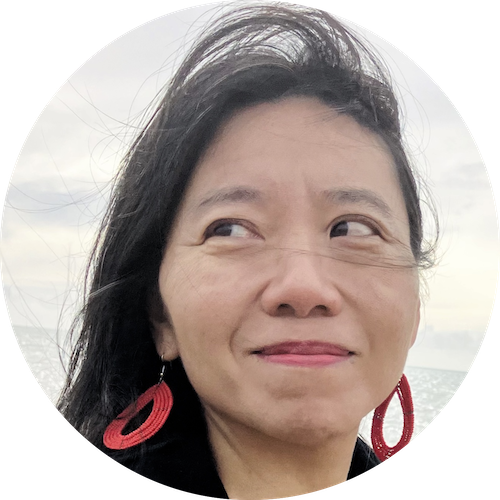
Xiaolu Guo is a Chinese-British novelist, memoirist and filmmaker. Her novels include A Concise Chinese-English Dictionary for Lovers (2007) and I Am China (2014). Her memoir Once Upon A Time In The East (2017) won the National Book Critics Circle Award and was shortlisted for the Ondaatje Prize. She is a fellow of the Royal Society of Literature, and was a jury member for the Man Booker Prize 2019.

Nicky Harman is a translator of fiction from Chinese into English. Harman has won the 2020 Special Book Award of China, several PEN Translation Fund Awards, and was longlisted for Man Asian Literary Prize. Harman is a founding member of Paper-Republic.org, blogs about translation, teaches summer schools and judges translation competitions at the Leeds Centre for New Chinese Writing, and The Anthea Bell Prize for Young Translators.
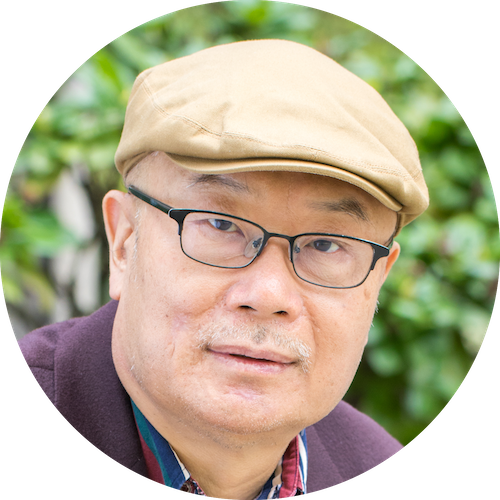
Ha Jin is a Chinese-American poet and novelist, who has published numerous books of fiction, poetry and nonfiction in English. He won the National Book Award for Fiction and the PEN/Faulkner Award for his novel Waiting (1999), while War Trash (2004) also won the PEN/Faulkner Award, and was a finalist for the Pulitzer Prize for Fiction. Ha Jin’s work has been translated into over 30 languages. He teaches literature and creative writing at Boston University.

Perry Link is Professor of Comparative Literature/Chinese at University of California, Riverside, and Professor Emeritus of East Asian Studies at Princeton University, specializing in 20th-century Chinese literature. His publications include The Uses of Literature (2000), An Anatomy of Chinese (2013) and, most recently, I Have No Enemies (2023). He is a regular commenter on Chinese society and politics, at The New York Review of Books and elsewhere.
FAQ
Award for Outstanding Nonfiction Book on China or the Sinophone World
What is the purpose and scope of the award?
The purpose of the Award for Outstanding Nonfiction Book on China or the Sinophone World is to reward and garner recognition for exceptional nonfiction book-length works, written in English for the general reader, that carry forward the conversation on China or the greater Sinophone world and Chinese diaspora, further our understanding of its complexities, and to encourage future work that engages deeply with the topic.
What are the criteria for selection of the winner?
The jury is encouraged to reward work based on the following broad criteria, but will decide the winner based on their own independent discernment.
- Quality. Work that shines out for its assiduousness, ambition, clarity of thought and other measures of success, based on merit and disregarding of political stance.
- Originality. Whether through reporting, research or analysis, work that contributes something new to the conversation around greater China that has not been said before.
- Readability. Work that is easy for the general reader to follow without special prior knowledge, and whose writing and style is actively enjoyable.
What books qualify for consideration?
- Qualifying books are nonfiction titles written for the general reader whose subject or setting is China, the greater Sinophone world or the Chinese diaspora.
- The first English-language edition (U.S. or international edition) must be published in the calendar year under consideration (2024).
- Only books published in the English language will be considered, published in print by a publishing house or imprint (not self-published/KDP).
- Books written by authors with an official affiliation to China Books Review or its publishers are disqualified from consideration.
How do I submit a title?
We currently only accept submissions from publishers. All publishers are invited to submit titles that qualify for the award to listings[at]chinabooksreview.com before Feb 15, 2025, with the subject line “Nonfiction Prize submission.” In the body of the email please include the title, author, publisher (imprint) name, original publication date and publisher page link, and attach a full PDF of the book. In addition to publisher submissions, the jury will also consider a longlist of qualifying titles that were nominated by a wide range of China scholars, writers and experts. Publishers are encouraged to check this list to avoid submitting a book that is already under consideration.
How do you ensure fairness?
The nominated jury for the award has full independence to choose the shortlist, winner and honorable mention from qualifying books. They are instructed to disclose relationships with authors under consideration, and are able to recuse themselves from those discussions. The criteria of selection for the winner are based on merit alone, not background or beliefs.
Award for Outstanding Translated Literature from Chinese Language
What is the purpose and scope of the award?
The purpose of the Award for Outstanding Translated Literature from Chinese Language is to reward and garner recognition for exceptional works of literature that provoke thought and feeling, written in Chinese language and translated into English, that further our understanding of China (or the greater Sinophone world and Chinese diaspora) and the human condition through the power of the written word in all its forms.
What are the criteria for selection of the winner?
The jury is encouraged to reward work based on the following broad criteria, but will decide the winner based on their own independent discernment.
- Story. The ability of plot, character, theme and perspective to engage the reader deeply, making them think or feel strongly.
- Style. The quality, originality and fluidity of language, as rendered into English by translation (not considering the original).
- Substance. The skill with which themes and topics are examined (based on literary merit, not political or other viewpoint).
What books qualify for consideration?
- Qualifying books are any form of fiction or nonfiction literature (including poetry) for the general reader, originally written in a Chinese language and translated into English, whose subject or setting is China, the greater Sinophone world or the Chinese diaspora.
- The first English-language edition (U.S. or international edition) of the English translation must be published in the calendar year under consideration (2024).
- Only books published in the English language will be considered, published in print by a publishing house or imprint (not self-published/KDP).
- Books written or translated by authors with an official affiliation to China Books Review or its publishers are disqualified from consideration.
How do I submit a title?
We currently only accept submissions from publishers. All publishers are invited to submit titles that qualify for the award to listings[at]chinabooksreview.com before Feb 15, 2025, with the subject title “Translated Lit Prize submission”. In the body of the email please include the title, author, publisher (imprint) name, original publication date and publisher page link, and attach a full PDF of the book. In addition to publisher submissions, the jury will also consider a longlist of qualifying titles that were nominated by a wide range of China scholars, writers and experts. Publishers are encouraged to check this list to avoid submitting a book that is already under consideration.
How do you ensure fairness?
The nominated jury for the award has full independence to choose the shortlist, winner and honorable mention from qualifying books. They are instructed to disclose relationships with authors under consideration, and able to recuse themselves from those discussions. The criteria of selection for the winner are based on merit alone, not background or beliefs. ∎
Update 5/28/25: The titles of the awards have been updated to remove ambiguity. The “Award for Outstanding Nonfiction Book on China or the Sinophone World” was initially titled “Award for Outstanding Nonfiction Book on China”; and the “Award for Outstanding Translated Literature from Chinese Language” was initially titled “Award for Outstanding Translated Chinese Literature.”


